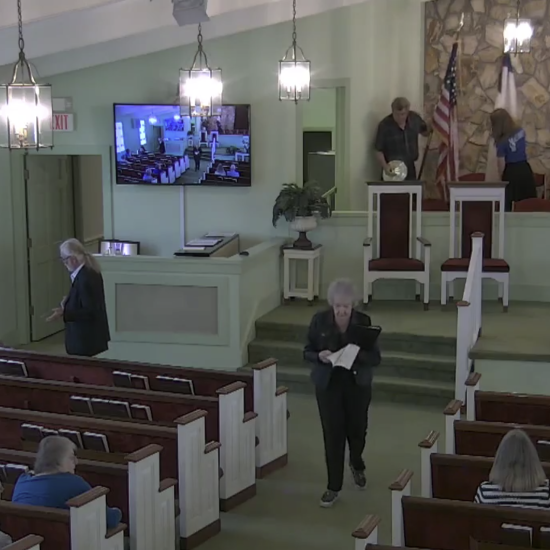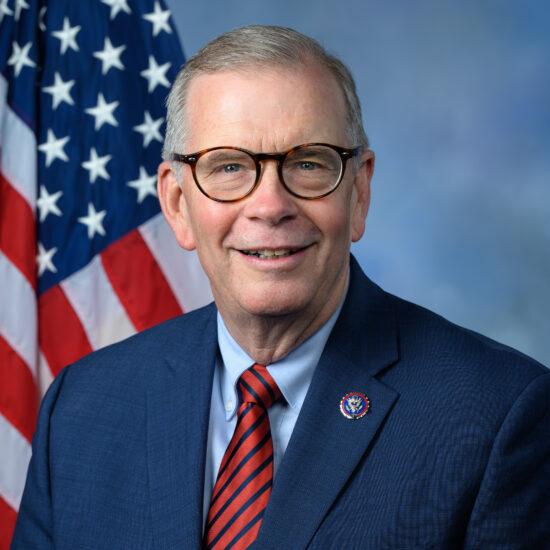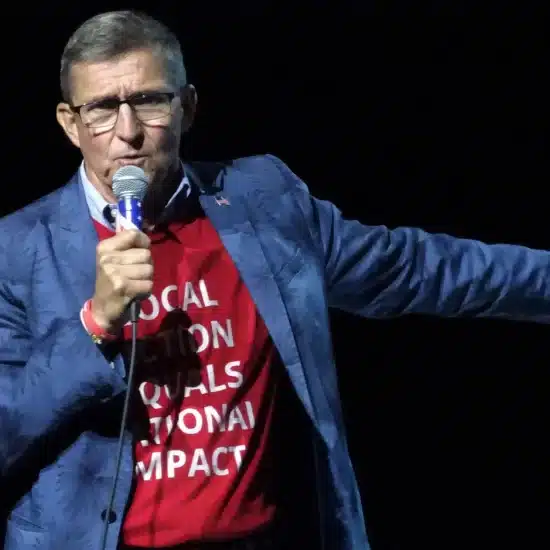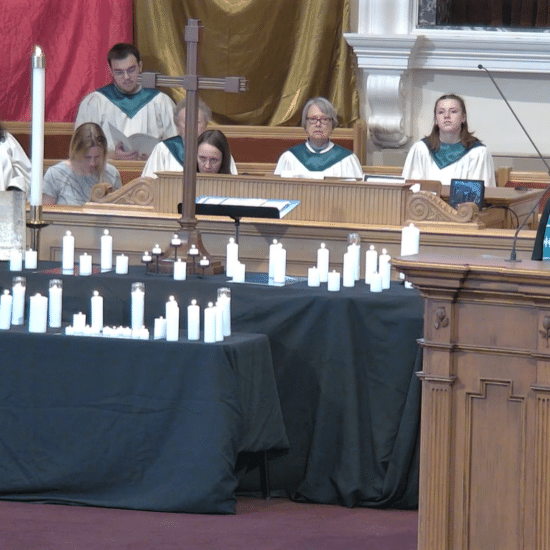AUGUSTA, Ga.—Jack Robinson is in England at the moment because of the dual callings he sensed as a child and because of the Olympic gold medal he won in London in 1948.
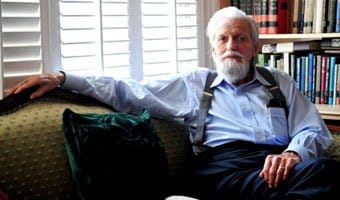
Jack Robinson
|
And for all of that, the retired Baptist pastor says, he owes thanks to the father who died of blood poisoning when he was 2.
Robinson, 85, said the evangelism bug bit him early. He participated in church services as an adolescent and by high school he was a licensed Baptist preacher sharing the gospel at youth revivals across Texas and other states.
The other calling—and it was a calling, he said—was to play basketball.
“I started throwing tennis balls through empty coat hangers on mom’s closet door at 5 or 6, and I was bouncing balls from then on,” said Robinson, who now lives in Augusta, Ga., with his wife, Charlotte.
The record books and those who know Robinson testify that he followed both callings to the highest levels—not one after the other, but simultaneously.
How he did that, they say, has as much to do with his natural abilities as it does his conviction that both pursuits complimented each other.
College champion
The biggest influence by far was his father, Bryan Robinson, who had been a Texas preacher and a star athlete in high school and college. Some of Robinson’s earliest memories were of gazing at photographs of his dad in church settings and athletic uniforms.
“He was a basketball player who played on state championship teams and poll vaulted at Baylor,” Robinson said. “And he was the pastor at [Baptist] churches in Fort Worth.”
Likewise, the younger Robinson excelled in sports and his teams almost always were champions. He was sought after by colleges around the nation after earning more than a dozen letters in different sports in high school.
“I had all sorts of scholarship offers,” Robinson recalled, but his dad’s alma mater held the most appeal. “I went to Baylor—the athletic director had played on the basketball team and run track with my father.”
As a guard, Robinson led the Bears to two conference championships and two NCAA championship appearances, including a 1948 game at Madison Square Garden against Kentucky.
Baylor lost, but Robinson’s spirits were lifted the next day when he glimpsed a New York Times story announcing the mix of college and other amateur players chosen for the U.S. Olympic men’s basketball team.
“The subhead said ‘Robinson, Lump collegiate choices,’” he said.
‘All of us choked up’
The team sailed across the Atlantic on the SS America to begin a barnstorming series of exhibition games in England, where the game was relatively unknown.
“We were to teach the game to the Brits, who called it ‘net ball,’ and mostly women played it,” he said. “After ’48, it caught on.”
England was still in shambles in the wake of World War II. “They called them the ‘austerity games,’” Robinson remembered. “There was still rubble in the streets and sugar was rationed.”
Robinson and his American teammates, who were quartered in Royal Air Force barracks, dominated the games that year, winning all but one of their contests by blowout.
“The only close game was against Argentina,” he said. “We beat France by 41 points in the finals.”
Robinson said he was just soaking it all in until the medal ceremonies.
“I did pretty well until they played ‘The Star Spangled Banner,’ and then all of us choked up.”
‘They kept pestering me’
But going to England wasn’t all about basketball for Robinson. While there, he sought out James Stuart Stewart, an acclaimed author and evangelist at North Morningside Church in Edinburgh.
He visited the church twice and his Olympian status helped him gain access to the preacher’s study, where the two men talked about ministry and faith—and about how Robinson could get the minister tickets to the Olympic basketball games.
“He is the greatest preacher of your lifetime and of mine,” Robinson said.
The encounter fortified Robinson’s resolve to preach, which he had done while preparing for the games and immediately upon returning from Europe.
Robinson said the desire to preach never left him.
Even in college, he had preached—and so well that two small churches called him to be their pastor. One of them, 9th Street Mission in Waco, he accepted and pastored while enrolled at Baylor.
In 1953, Robinson preached a youth revival in Augusta, Ga., that so impressed the locals that he was immediately asked to pastor the host congregation, First Baptist Church.
“They kept on pestering me,” he said.
He finally accepted and pastored the church into the early 1970s. He followed that as an international missionary and church starter in Europe.
Risk taker
“He was a fabulous preacher,” said Warren Daniel, 64, of Augusta. Daniel was baptized by Robinson at age 7 at First Baptist, where he now sits one pew in front of the pastor emeritus.
Robinson was always prepared and used great analogies and illustrations in his sermons.
That his pastor had been an international basketball star only dawned on him and other children as they got older and started playing hoops at the church, Daniel said.
“He would come out and shoot and play with us, and we all figured out he was pretty dog-gone good.”
He was also a visionary who didn’t shy away from controversy, said Gregory Deloach, First Baptist’s current pastor. Robinson raised eyebrows by launching the church’s television program in the 1950s, DeLoach said.
“That was very radical and progressive thing to do,” he said. “Television was a brand new medium.”
He also led the difficult process to move the church from its historic downtown location to a multi-acre site in the western part of the county, DeLoach said. Robinson and his staff faced government red tape and an unsuccessful lawsuit by some church members opposed to the move.
“That took a lot of guts and courage, foresight and risk,” DeLoach said. “If we had stayed downtown we would have been landlocked.”
Going back in time
Robinson’s success as a pastor cannot be separated from his athletic prowess, said Frances Claussen, one of this two daughters.
“My dad grew up in a locker room” which made him “a good people person,” she said. “He has that way of communicating and talking that just draws you in.”
That’s one of the reasons she was eager to be in London with her father during the games.
“I’m looking forward to the trip with him because I hope it will trigger more stories,” she said before they departed July 25. “To be over there with him as he goes back in time, can’t you just see him over there?”
“I’m looking forward to the opening ceremonies” and attending track-and-field competitions, Robinson said. He said seeing the men’s basketball team play won’t be a top priority since they aren’t amateurs as Olympians were when he played.
And just like 1948, Robinson said the games won’t be his only interest while in England. There will be museums to visit and his scheduled talk to the London Rotary Club, which helped replace his gold medal stolen in 1961.
And there is one other destination, he said: “Church. We will go to church there.”
Jeff Brumley (jeff@abpnews.com) is assistant editor of Associated Baptist Press.

